A Week in Croatian Politics - Taxes on Taxes, Drones and Spanish Royalty
This week in Croatian politics, we've had everything from Spanish royalty visiting the country for the very first time to Milanovic insulting the foreign minister, missiles hitting Poland, complaints about taxes being put on taxes and still not actually knowing who dropped a drone on Zagreb back in March.
PM Andrej Plenkovic meets the Spanish king
Andrej Plenkovic met with the Spanish king during the very first visit of the Spanish royals to the Republic of Croatia this week. King Felipe VI of Spain and Plenkovic sat down to discuss economic cooperation, the ongoing energy crisis, migrant policies and Croatia's imminent entry into the Schengen area.
As stated, this was the Spanish royal couple's very first official visit to Croatia, and Plenkovic pointed out that the visit is "a pledge to further strengthen bilateral relations with Spain at all levels, with a special emphasis placed on on cultural, educational and scientific exchange".
A Memorandum of Understanding was also signed between the Croatian Ministry of Science and Education and the Spanish Ministry of Science and Innovation on cooperation in the creation of the DONES Programme, which envisages a partnership between Croatia and Spain in fusion research.
"Projects like this are an opportunity for further cooperation between Croatian and Spanish companies in the high-tech and scientific sphere, they also represent the improvement of economic relations," the press release on the matter stated. Plenkovic was quick to thank King Felipe for Spain's ongoing support in Croatia's entry into Schengen, which is set to occur on the 1st of January, 2023, the same date on which Croatia will officially adopt the euro as its currency.
The pair also discussed current challenges such as the energy crisis caused by Russian aggression against Ukraine and the bloc's migrant policy, which requires a unique European response, as well as the role of the EU in Latin America and in the Western Balkans.
The Croatian Employers' Association (HUP) claims the new tax which was proposed recently will further discriminate against certain companies and work to punish the most successful
''We're shocked by the government's proposal for a new profit tax because it's discriminatory and puts the most successful companies in Croatia at a disadvantage. This is actually the dishing out of a punishment to the most successful companies in this country, the companies that fill the state budget the most, employ the most people, pay the highest salaries and invest the most," said the Croatian Association of Employers, reacting to the introduction of the new profit tax.
"Companies operating here in Croatia don't have extra earnings, this year's profit barely covers losses from previous years, and it's completely unclear as to why the government is doing this. Ahead of us lies a crisis and recession, the depth of which we don't yet know. What we know is that Croatian companies are cancelling orders left, right and centre and that now we need the strength to survive the recession and let people keep their jobs," they warned from HUP.
"This is a proposal to introduce a tax on taxes, which will certainly stop investment in development, which means that there will be no new jobs or salary growth, and we're once again becoming an unsafe country for business and looking unattractive to investors. Along with Hungary, we're the only country that spreads the tax across the entire economy instead of, as prescribed by the European Commission Regulation, keeping it exclusively to the energy sector, which made an unexpected profit thanks to market disruptions caused by the war in Ukraine," announced HUP.
"HUP cannot support the unjustified discrimination of large companies that this proposal brings. On top of that, this tax cannot be introduced retroactively for the year 2022, when investment and employment plans have already been implemented. This proposal will unjustifiably penalise the most successful Croatian companies, the best employers and the largest investors who and they pay the most into the state budget," said Irena Weber, CEO of HUP.
Instead of introducing yet more new taxes, HUP very concretely advocates a full tax reform and stronger work relief through an increase in the personal tax deduction and a reduction in income tax rates. This is the way to strengthen the economy, attract new investments, increase wages and create new jobs, according to them.
Milanovic and King Felipe talk politics while their wives talk healthcare and the prevention of obesity in children
King Felipe VI of Spain and Croatian President Zoran Milanovic are both satisfied with the bilateral relations between the two European countries, while their wives emphasised the importance of preventing obesity in children for preserving the health of the entire population, according to the press releases published after their meetings in Pantovcak.
The Spanish king was on a two-day official visit to the Republic of Croatia together with Queen Letizia, and after the ceremonial reception at Pantovcak, President Milanovic and his wife Sanja Music Milanovic spoke with the royal pair. The Spanish king and the Croatian president both stated that they are satisfied with the bilateral relations between Croatia and Spain, which are two friendly and allied countries, members of the European Union and NATO.
King Felipe and Milanovic also referred to the close scientific cooperation between the two countries, which is particularly marked by the joint partnership in the aforementioned DONES programme, which the Spanish king also discussed at length with Plenkovic.
The meeting also discussed current European and global topics, including the security crisis in Eastern Europe caused by Russian aggression against Ukraine, while their wives discussed the importance of preventing obesity in children.
Sanja Music Milanovic and Queen Letizia of Spain separately discussed innovative approaches to obesity prevention in children in Croatia, Spain and the entire continent. The importance of obesity prevention in children for preserving the health of the entire population was emphasised and the importance of a comprehensive approach to obesity prevention through a multisectoral set of interventions aimed at all periods of life was emphasised, the press release on the topic stated.
Music Milanovic presented the professional and scientific activities she carries out in this area in Croatia and Europe and announced the upcoming inaugural summit of the spouses of European leaders on the topic of childhood obesity prevention across Europe, which she will jointly organise with the European Office of the World Health Organisation (WHO).
The King and Queen of Spain were, as stated, on their very first official visit to Croatia during the year which marks the 30th anniversary of the establishment of diplomatic relations between Croatia and Spain, all with the aim of confirming exceptionally good bilateral relations and providing incentives for their further development.
Croatian authorities still don't know who launched the six-tonne drone which hit Zagreb eight months ago
As news broke about an alleged Russian missile having crossed over into Polish territory, killing two people, our memories return to the drone which struck Zagreb eight months ago. It turns out that the powers that be still have no idea who launched the mysterious drone which crash landed and ended up in pieces.
The Russians are still claiming that the drone which struck Poland had nothing to do with them, saying all those who are claiming it to be Russian are just trying to provoke. Still, we were all shocked and we went from speculating about a Russian attack on Poland, a NATO country, to thinking about the possibility of a third world war to, what is now increasingly likely, finding out that the missile was in fact Ukrainian.
As a reminder, two people were killed after, as Polish authorities then said, a "Russian-made projectile" fell near the village of Przewodow, about 6.4 kilometres west of the Polish-Ukrainian border, around the same time that Moscow forces launched their largest wave of missile attacks on multiple Ukrainian cities in more than a month.
The circumstances of the incident, including information about who fired the missile and from where it was fired, were unknown, which caused possible speculation about Russian involvement in the event and expectations of NATO's next step following the apparent striking of Poland, a NATO member state. But according to US officials, initial findings suggest that the missile that hit Poland was actually fired by Ukrainian forces at an incoming Russian missile.
Three officials told the Associated Press (AP) news agency that the Ukrainians were trying to defend themselves against Russian fire aimed at their electrical infrastructure. This is the event that reminded us of the incident that happened on March the 10th right here in Zagreb, just two weeks after the start of the Russian invasion of Ukraine. Then, a strange Soviet-made Tu-141 unmanned aircraft crashed in Zagreb near the "Stjepan Radic" student dormitory. During the fall, the unmanned aircraft crashed into the ground, leaving a crater behind it.
The circumstances behind it all are still unclear, so Index asked DORH recently if it had ever actually been established who had sent that drone into Croatian territory.
"On April the 13th, 2022, the County State Attorney's Office (DORH) in Zagreb, in the presence of experts, held a press conference where they reported on the results of the investigation related to the crash of the drone.
''At the aforementioned press conference, it was stated that the answers to the questions about where the [unmanned] aircraft came from and whose aircraft it was are under the jurisdiction of other bodies, and not under the jurisdiction of the State Attorney's Office," the answer reads. As for the press conference that DORH mentions in the answer, it was said that the drone had Ukrainian colours on it, but also that it was carrying a bomb. "It was undoubtedly established that it was fragments of an OFAB 100-120 aerial bomb," Major Mile Tomic said in a DORH press release back in April, adding that a lighter was also found.
"During the impact, an explosive device did explode, as was evidenced by the creation of a large crater, the scattering of earth and stones, the ejection of fragments from the crater, as well as traces of tearing and hardening of the metal parts of the bomb," said Ivana Bacic, a chief fire and explosion expert.
"The original aerial bomb should contain 40 to 46 kilos of TNT military explosive, which would be characterised by blackening," Bacic noted.
The Zagreb drone incident could therefore have had horrendous consequences, and yet it seems we're none the wiser. By sheer luck, a real tragedy was avoided. When people say the word 'drone', to many people it sounds like a plastic toy or indeed a type of worker bee, but in this case we're dealing with something that weighs six tonnes and was carrying an explosive on it. It fell in the immediate vicinity of the student dormitory and what could have happened doesn't bear thinking about. In spite of all of that, it is still not known who the drone belonged to, how it was launched, or and why.
Back at that time, the drone event stimulated two debates. First, the question arose as to how much protection NATO provides to Croatia in general.
Before entering Croatian territory, the drone flew over two NATO member states, Hungary and Romania, only to crash in the third NATO member state, Croatia, after seven minutes of flight. In those seven minutes, no one reacted, neither the Armed Forces of the Republic of Croatia nor the Directorate of Civil Protection. NATO did nothing either, and all that lack of action in the then very fresh situation of the shocking Russian invasion of Ukraine and the outbreak of war here in Europe once again.
"NATO's integrated air and anti-missile defense followed the flight path of the object that subsequently crashed in Zagreb. The Croatian authorities have announced that they are investigating this incident," said a NATO official at the time.
Second, in parallel with the investigation, there was a debate about whether the drone really had a bomb on it or not. Defense Minister Mario Banozic and Prime Minister Andrej Plenkovic claimed that there was an explosive device in the drone, while a number of experts disputed this. President Zoran Milanovic was also skeptical about the presence of a bomb in the drone, and he was quick to reproach Plenkovic and Banozic for stoking fears.
Even NATO Secretary Jens Stoltenberg entered the discussion about the explosive device on the drone, and he stated at a press conference that the drone was unarmed. After that, another press conference was called by Prime Minister Plenkovic, who denied his claim, along the way showing photos of parts of the drone that he said belonged to the bomb.
As stated, despite the severity of this incident and all of the potential reasons behind it which are extremely concerning to think about given Russia's actions and the ongoing war over in Ukraine, nobody seems much more in the know then they were back on March the 10th.
Foreign Minister Gordan Grlic Radman says that we will not be training Ukrainian soldiers on Croatian territory
If you recall, Zoran Milanovic was among the loudest in his opposition to this idea, and it seems he is far from alone in his thoughts that supporting Ukraine should be as far as Croatia goes, as we don't want to bring the war to our doorstep.
"I'm absolutely not going to give my consent. Grlic Radman went to Brussels without my prior consent. There are enough of Plenkovic's mini ministers going up to Brussels without the prior consent of the commander-in-chief, and it isn't going to carry on that way. Grlic Radman is nobody and nothing, Plenkovic is actually important here, but he went and pushed himself to the front row like a dumb nerd," Milanovic said about the Minister of Foreign Affairs, once again using another opportunity to sling mud and throw insults around.
Grlic Radman also said later today that there will be no training of Ukrainian soldiers in Croatia, and he remained polite and professional in his wording.
"What Croatia can offer, it will offer. Is it the training of Ukrainian soldiers on our territory? No, no it isn't, it will be on the territory of some other EU member states that have offered. However, the countries in which that might take place still haven't been determined,'' Grlic Radman said in an interview with RTL Danas/Today.
For more on Croatian politics, make sure to keep up with our dedicated section and keep your eyes peeled for our Week in Croatian Politics articles which are published every Friday.
Croatian Market Welcomes Spanish Cosmetic Brand Equivalenza
July the 12th, 2022 - The biggest Spanish cosmetic brand Equivalenza has arrived on the Croatian market and will be run by Croatian franchise purchasers right in the very centre of the City of Zagreb.
As Poslovni Dnevnik/Marija Crnjak writes, the largest Spanish cosmetics brand, Equivalenza, has arrived on the Croatian market as a huge chain with more than 700 stores worldwide. Their philosophy is based on sustainability and the availability of premium fragrances and cosmetic products at very fair, affordable prices, with the belief that fragrances can change both mood and ambience.
The first Croatian Equivalenza store was opened last week in the heart of the City of Zagreb, thanks to Igor Drandic and Iva Mihelic Drandic, whose company Bolji miris (a better scent) became the master franchisor of this brand for the Republic of Croatia and the Croatian market through their purchase of the franchise from the Spaniards, with the help of the Colak Franchize Consulting Group.
Reusable bottles
Igor Drandic, a banker by trade, entered this project with his wife Iva who has previous entrepreneurial experience as the owner of a store with clothing by local designers that was closed during the coronavirus crisis, so for Iva, this is represents a very much desired return to private business.
"Given that we already had experience, and as a banker I take numbers very seriously, we had very specific requirements regarding our future project. We decided to buy a franchise because it's already an elaborate and well-established business. We were looking for something that doesn't require a large office space and doesn't have many high fixed costs, nor does it have many employees considering the lack of personnel available on the Croatian labour market. We were encouraged by the fact that Equivalenza has more than 700 facilities across the world already,'' explained Igor Drandic, who didn't reveal the amount of the total investment.
Equivalenza was otherwise founded back in 2011 with the aim of making high-quality fragrances available to everyone at affordable prices, and the prices are lower because there is no branding of the products themselves, nor is there any on the packaging, there are also no middlemen or intermediaries in the sales process because the deliveries go out directly from the factory itself.
As Iva Mihelic Drandic, the company's director, explained, Equivalenza's business model is based on the reuse of glass bottles. Their fragrances are aged for 27 days, and the assortment is based on emotions, and through four lines that represent different states and emotions, along with perfumes, products for body care and creating an ambiance in the home and car have been introduced. The idea is that perfume and face cream, shower gel and body lotion, and oil poured into a diffuser can all have the same scent.
Equivalenza is known as a brand with many loyal customers who return regularly to refill their bottles. In addition to taking care of the environment, they pay attention to social responsibility.
The dilemma between opening a store in a large shopping centre and in the heart of the city centre itself is resolved in favour of the centre of Zagreb, partly due to the uniform traffic throughout the week, while the peak in shopping centres takes place on on weekends, when it is also very crowded. According to the couple who have brought the Spanish franchise to the Croatian market, this would be burdensome for numerous people.
For more, make sure to check out our dedicated business section.
Croatian-Spanish Fusion Project Starting Soon
ZAGREB, 17 March 2022 - In two to three weeks Croatian and Spanish scientists will start to examine materials necessary for building an EU power plant where electricity will be produced by fusion.
The Croatian and Spanish science ministers, Radovan Fuchs and Diana Morant, respectively, signed in Madrid on Wednesday an agreement green-lighting the DONES (Demo Oriented Neutron Source) project.
The EU wants to build the first demo power plant where electricity will be produced by the fusion of two lighter hydrogen atoms into a heavier one that releases huge amounts of energy. Currently, materials used to build power plants are unable to withstand such high temperatures and radiation.
In order for the construction of the first demo plant to begin in 2035, it is necessary to find the required construction materials.
"Croatia and Spain will examine materials from which fusion reactors should be made in the future... because we are talking about high intensity radiation," Fuchs told Hina.
Croatia and Spain agreed in 2018 to examine the materials together as part of the DONES project. A facility will be built in Granada, Spain and local scientists will work together with colleagues from Zagreb's Ruđer Bošković Institute.
Fuchs said the project was worth €400 million and that Croatia would participate with €30 million, the rest coming from Spain.
"This opens a whole range of possibilities for the participation of high tech companies building such experimental plants," he said, adding that Croatian companies are interested, too.
Fuchs visited Madrid as part of a Croatian delegation led by Prime Minister Andrej Plenković, who met with his Spanish counterpart Pedro Sánchez, who mentioned the future cooperation on this project at a joint press conference.
Fuchs said today's agreement was just the start of the whole story and that the project "begins in two or three weeks. There will be intensive traffic between Granada and Zagreb."
Croatia and Spain were among the countries that applied for the DONES project, submitting the documents required to the EU Fusion for Energy (F4E) body.
An F4E task force assessed that the locations the two countries proposed for the project, Spain's Granada and Croatia's in the Moslavina region, were both suitable but that Granada was more ready as a vacant technological park. The Moslavina location, an empty building site, serves as a backup location.
The Spanish Science Ministry said that since 2018, when the cooperation was agreed, Spain and Croatia had participated together in several European projects as part of the EUROfusion project.
"This is yet another step in the science cooperation between Spain and Croatia", said Minister Morant.
The ministry said the construction of the facility in Granada would create 1,000 jobs, including for 400 top scientists from all over the world.
For more, check out our politics section.
Plenković Announces Stronger Cooperation With Spain
ZAGREB, 17 March 2022 - Wrapping up his visit to Spain on Wednesday evening, Croatian Prime Minister Andrej Plenković announced the further strengthening of bilateral relations in economy, science, culture in the Mediterranean as well as cooperation in international issues such as the Ukraine conflict.
"Spain has extended strong political support for Croatia's entry to Schengen, the euro area and the OECD. We appreciate the cooperation in the Mediterranean", Plenković said after meeting with Prime Minister Pedro Sánchez.
Plenković was the first Croatian prime minister who visited Spain since 1996.
"I took the opportunity for talks on Southeast Europe as well, on the need to reform the election law in Bosnia and Herzegovina. We want that law to be just for all three constituent peoples, so that they can elect their true representatives", he said, adding that Croatia will support BiH on its EU path.
The situation in BiH is not in Madrid's focus.
Sánchez said they confirmed that they would strengthen the bilateral relations and commended the cooperation with Croatia in the Council of the EU.
This year marks 30 years of bilateral relations between the two countries.
After meeting with Sánchez, Plenković met with Congress of Deputies President Meritxell Batet for talks on parliamentary cooperation and the humanitarian repercussions of the Russian aggression on Ukraine.
He was then received by King Felipe VI at the royal palace.
Speaking to the press afterwards, Plenković said the meeting was cordial. They exchanged views on bilateral and European matters.
"Faced with new security challenges, we are strengthening our partnership within the EU and NATO", he wrote on Twitter.
King Felipe VI vacationed on the Croatian coast in the past and an official visit is being arranged.
Plenković wrapped up his visit by meeting with the Croats living in Madrid at the Croatian Embassy, telling them to continue to develop cooperation in all areas.
For more, check out our politics section.
Spanish PM Pedro Sanchez Visits Croatia: Strong Cooperation in 2022
October 7, 2021 - Spanish PM Pedro Sanchez visited Croatia recently and met with Croatian PM Andrej Plenković to talk about deepening diplomatic relations in 2022.
Nobody can deny the fact that foreign countries' ambassadors and diplomats are valuable in the day-to-day business of nurturing diplomatic relations with Croatia on various levels (political, cultural, economic, and more). But it's even more special when political representatives of other countries actually come to Croatia for an official visit.
The latest such instance was the visit of Spanish PM Pedro Sanchez. His meeting with the Croatian PM Andrej Plenković was the big story in the Croatian media space. Apart from foreign politicians' visitors generally being interesting, this was also the first visit of any Spanish PM, making the story all the more interesting.
As stated by the official governmental website, the two PM's talked about upgrading diplomatic relations between Croatia and Spain and the continuing intense political dialogue next week down in Dubrovnik at the European Future Conference (one such conference was recently held in Osijek).
PM Plenković pointed out the fact that Croatia recently joined the MED 9 Forum which involves nine Mediterranian countries, including Spain.
''The forum will serve as a dialogue for Mediterranean countries for upgrading their cooperation in a series of areas, particularly in terms of key global questions we're faced with. From the fight against illegal immigration, climate change, which is particularly important for all Mediterranean countries, to a series of security and developing topics important for North Africa and the Eastern Mediterranean,'' said Plenković.
Spain and Croatia enjoy mutual trade worth one billion euros, but the goal is, of course, to increase that figure.
Both countries are tourism-oriented, with the Spanish capital of Madrid also being the headquarters of the World Tourism Organisation, and instead of looking at each other as competitors for global tourists, the two leaders agreed to collaborate and enhance the offers of both of their countries.
Spain will also be the host of a top NATO meeting in 2022. With Croatia being a very enthusiastic NATO member, the Croatian governmental website states this is another reason Croatia wants closer relations with Spain.
To make sure not everything is just trade, tourism, politics and the military, there's good progress in terms of science too, in particular, the environment.
''One of the projects that is very important for reducing greenhouse gasses is the DONES project. It is Croatian-Spanish partner cooperation in which the Croatian side brings experts from the Ruđer Bošković Institute. It is a very important strategic project for nuclear fusion financed by the European Union funds. Experts will work on upgrading research so we can have a future of infinite clean energy sources,'' promises the governmental website.
This meeting was initiated by Plenković and he invited Sanchez, but the wish for cooperation is mutual.
''Spain wants closer cooperation with Croatia,'' said Spanish PM Sanchez, adding he expects to see Plenković in Madrid next year.
Did you know our TC guide is available in Spanish? Disfruta leyendo!
For more about Croatian-Spanish relations, follow TCN's dedicated page.
Ruđer Bošković Institute Plasmonic Effect Research Shows Promise
September 10, 2021 -The Ruđer Bošković Institute plasmonic effect research described the property of nanoisland metal films of silver and copper which can be seen in various applications, particularly in green technology development.
Metal nanoparticles are submicron scale entities made of pure metals (e.g., gold, platinum, silver, titanium, zinc, cerium, iron, and thallium) or their compounds (e.g., oxides, hydroxides, sulfides, phosphates, fluorides, and chlorides), as explained by the Science Direct website.
When it comes to modern science, a particular interest in metals has now shifted to the Plasmonic effect. This effect is an interaction between free electrons in metal nanoparticles and incident light, as briefly explained by the National Institute of Technology Calicut physics department researcher Shamjid Palappra.
With this question raising curiosity among scientists worldwide, it was impossible for the Ruđer Bošković Institute (IRB) in Zagreb and their optics laboratory to not dive into the subject themselves.
As IRB reported, Matej Bubaš, Vesna Janicki, Stefano A. Mezzasalma, Maria Chiara Spadaro, Jordi Arbiol, and Jordi Sancho-Parramon authored a research titled ''Tailoring plasmonic resonances in Cu-Ag metal islands films'' which was then published in a respected Applied Surface Science journal.
IRB's optics lab collaborated on this research with colleagues from the Lund Institute of Advanced Neutron and X-ray Science (LINXS) in Sweden, and two institutions from Catalonia in Spain, the Catalan Institute of Nanoscience and Nanotechnology and ICREA.
''The plasmonic response of Cu-Ag metal islands films is being investigated. Films are obtained by the subsequent electron beam deposition of Ag and Cu using different fabrication conditions: the deposited mass thickness, then comes the substrate temperature, and then the post-deposition annealing in the vacuum. The optical properties of the films are investigated by spectroscopic ellipsometry and then correlated with the structural characterisation results obtained by electron microscopy,'' explained the abstract of the research concerning the metal island combination of silver (Ag) and copper (Cu).
''Overall, it has been shown that Cu-Ag island films are compelling systems for plasmonic applications, as their optical response can be widely and easily tuned by adjusting the fabrication conditions,'' the abstract summarised.
IRB's press release clarified the research goals, stating that the scientists described how plasmonic properties could be adjusted for the preferred types of radiation, be it infrared, visible light, or ultraviolet radiation. These descriptions and setup possibilities of nanoisland plasmonic properties bring with them a plethora of applications.
''Devices that use plasmonic effects already upgraded their diagnostics and spectroscopy, while research in the direction of upgrading the conversion of solar energy and manufacturing catalysts that would turn toxic compounds into useful ones carry great potential for the development of new green technologies,'' pointed out IRB's press release.
Developing green technologies and turning toxic compounds into useful ones is not a new thing for IRB, as TCN previously reported.
Learn more about Croatian inventions and discoveries from Tesla to Rimac on our dedicated TC page.
For more about science in Croatia, follow TCN's dedicated page.
Highlights of the Week: 5 Big Events in Croatia from June 28-July 4
June 3, 2021 - TCN's highlights of the week. A look at the events in Croatia from June 28 through the selection of TCN's reporter Ivor Kruljac.
EURO 2020 elimination and Dario Šarić in the NBA finals. Zagreb witnessing a series of arrests related to corruption of Milan Bandić's reign and explosive device planted in Split. In the midst of it all, is COVID-19 vaccination on its way to becoming obligatory and not optional? You may prefer the good news or the bad news, but here is both, as another week in Croatia comes to an end.
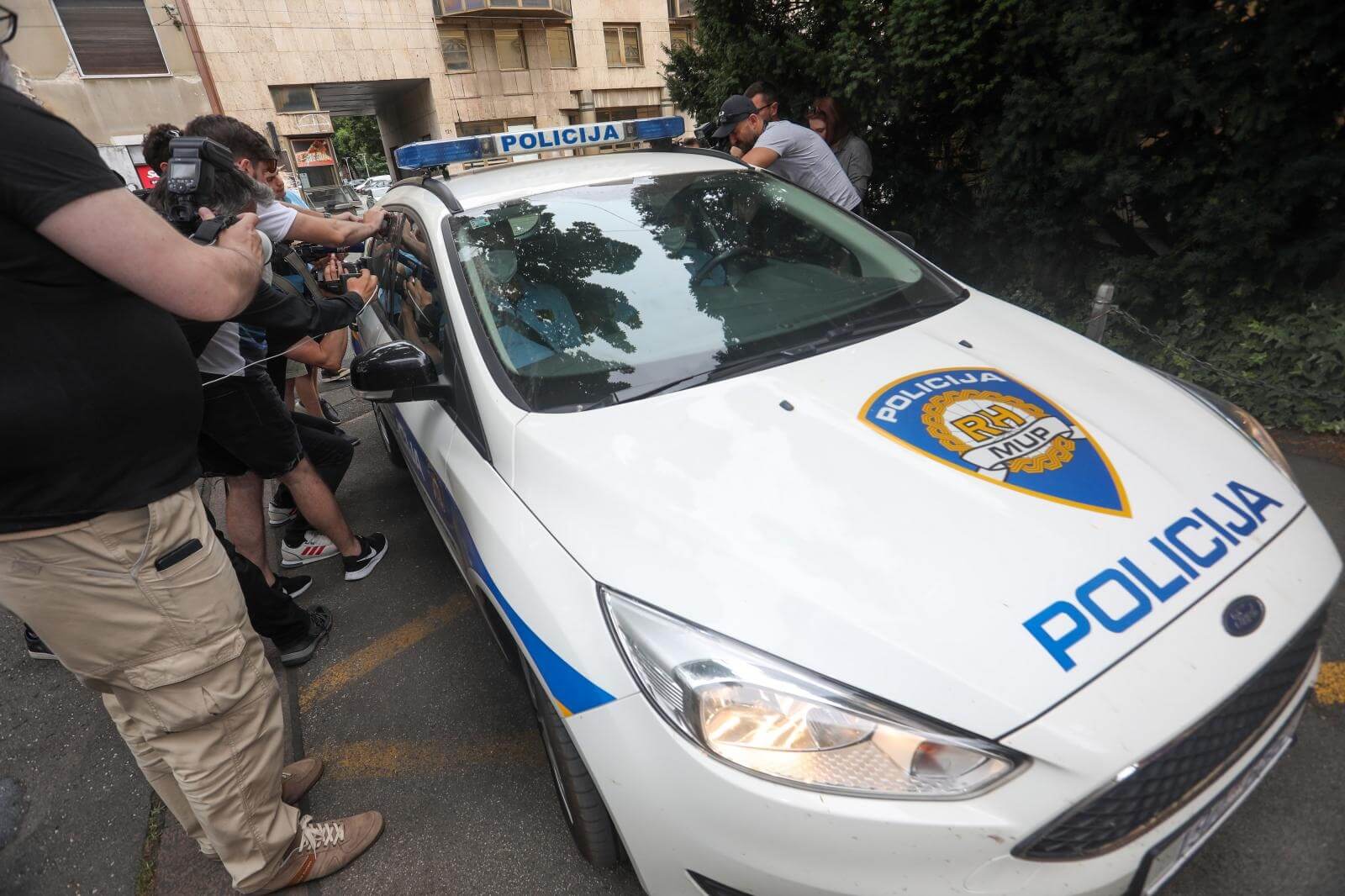
© Marin Tironi / PIXSELL
Highlights of the week: Uskok arresting Zagreb entrepreneurs and associates of former mayor Milan Bandić
The Office of Zagreb Mayor Tomislav Tomašević said on Wednesday that a preliminary investigation by members of the Office of the Chief State Prosecutor and the Office for Suppression of Corruption and Organised Crime (USKOK) started at the city administration offices at 6 am on Wednesday.
As TCN wrote, several people were arrested on suspicion of corruption, including the director-general of the HRT public broadcaster, Kazimir Bačić, Andrea Šulentić, and Ana Stavljenić-Rukavina. Both Šulentić and Rukavina were directors in Zagreb administration offices and close associates of former mayor Milan bandić. At the same time, details Bandić's heavy corruption (suspected and known publicly earlier) came to light.
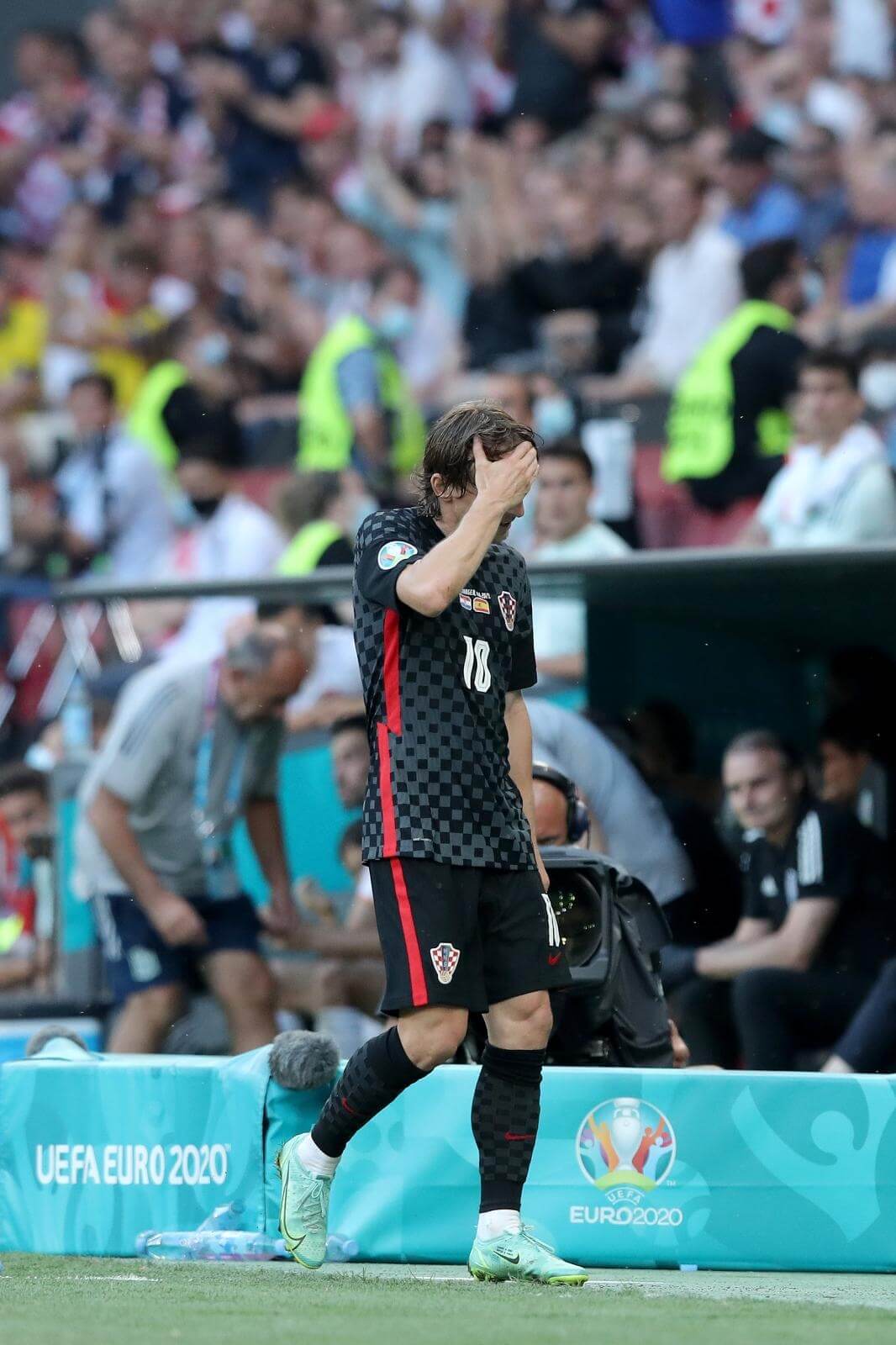
© Goran Stanzl / PIXSELL
Highlights of the week: Croatia eliminated from Euro 2020 after losing to Spain
Croatia and Spain met in Copenhagen on Monday for their EURO 2020 round of 16 match. It was a decent effort from Croatia, but not enough. Despite the Spain own goal in the 20th minute, the distraction as Rebić went to change his boots saw Spain even the score. The score towards the end of regular time went to 3:1 for Spain, but Croatia managed to lower to 3:2 and finally, in the added time, Pašalić scored for 3:3.
But, the euphoria was ruined for Croatia as in extra time, Morata earned Spain 4:3, and by 103rd minute, the total and final score was 5:3 for Spain. It was one of the more intense games on Euro so far as both teams show incredible spirit and persistence.
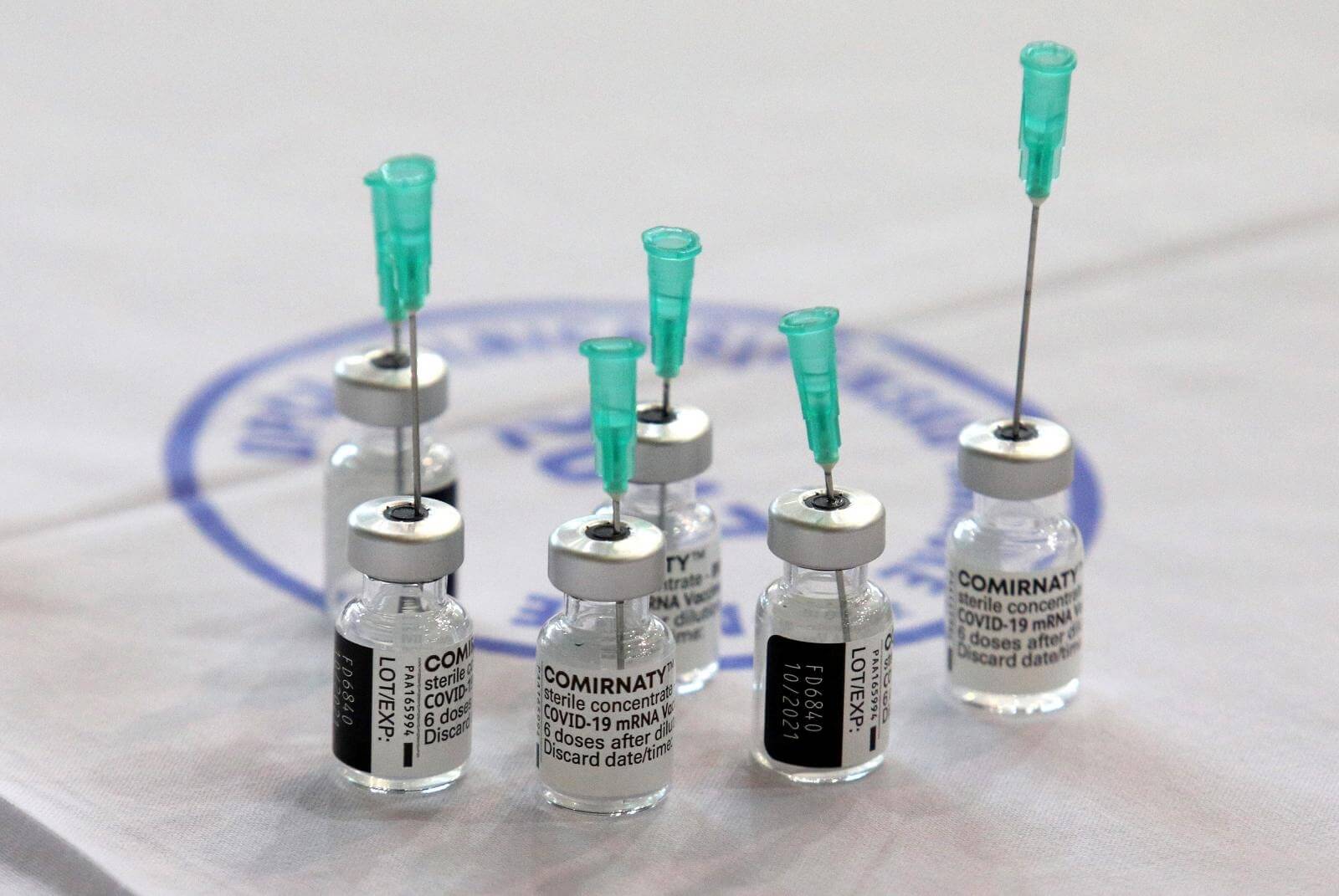
© Dusko Jaramaz / PIXSELL
Highlights of the week: Opposition parties against vaccination being required for job-keeping payments
The Social Democratic Party (SDP) called on Prime Minister Andrej Plenković on Thursday not to make vaccination a requirement for job-keeping payments, while the Most party said business owners were being blackmailed into vaccination.
As TCN reported, SDP leader Peđa Grbin elaborated his dissatisfaction via social networks.
"In Croatia, mandatory vaccination is possible, but the obligation is first established under the law on the protection of the population and then regulated and worked out under Immunisation Rules and the Mandatory Vaccination Programme. The obligation of vaccination can't be imposed in another way, notably not by linking support for entrepreneurs with vaccination," SDP president Grbin posted on Facebook.
"Most is against entrepreneurs, who are being forced into vaccination through blackmail, saving the government's mindless epidemic policy", stated the Most party on its official Twitter account. They added that Croatia was stuck with over 300,000 surplus vaccines because of poor government moves and communication omissions.
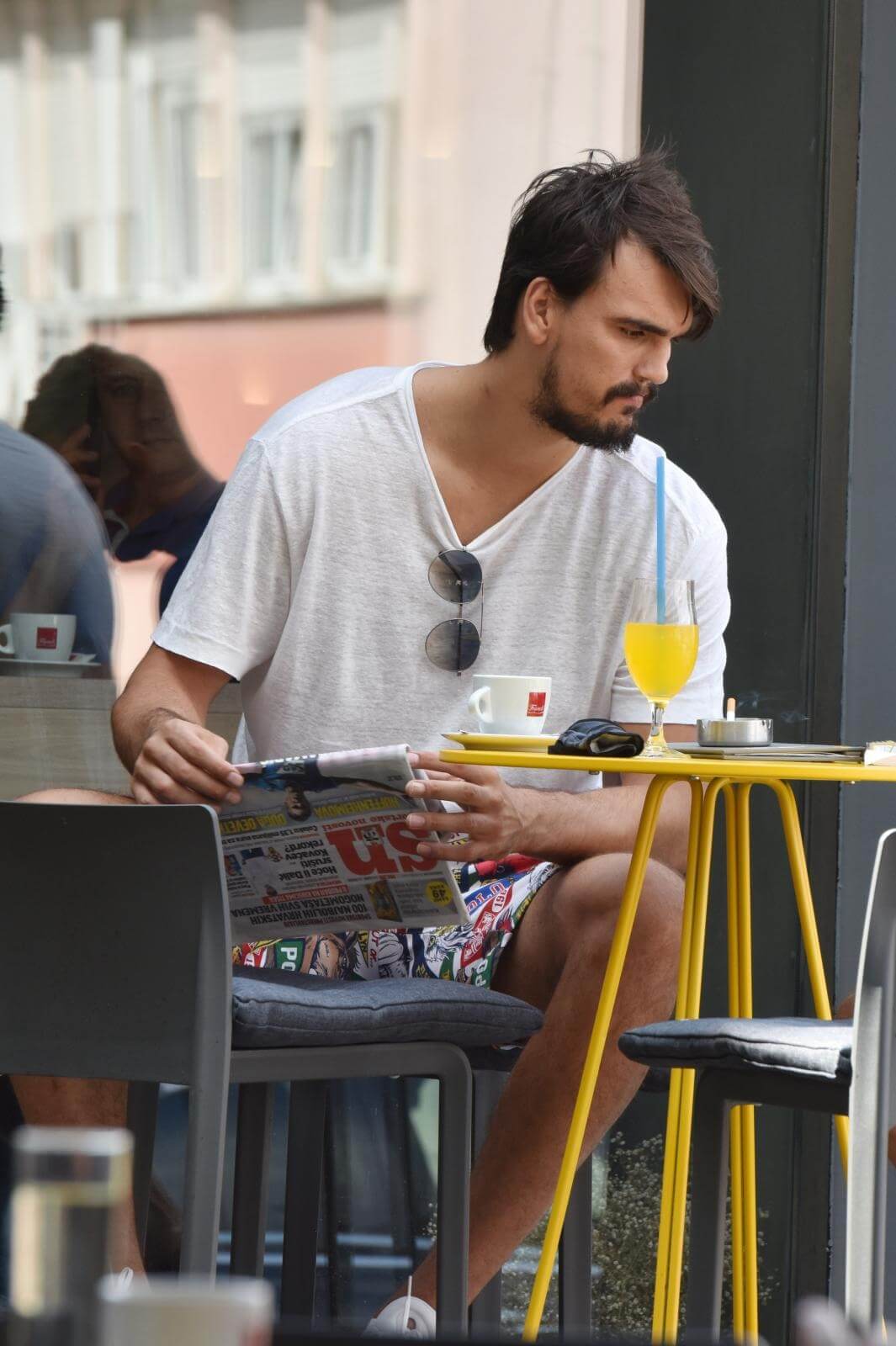
© Hrvoje Jelavic / PIXSELL
Highlights of the week: Dario Šarić becomes 5th Croatian basketballer in the NBA finals
Šibenik's Dario Šarić is the 5th Croatian basketball player to reach the NBA finals! As TCN wrote, Šarić became only the fifth Croatian basketball player in the NBA league finals, joining the company of Dražen Petrović, Toni Kukoč, Žan Tabak, and Ante Žižić. Šarić plays for Phoenix Suns. They topped the Los Angeles Clippers 4-2 in the NBA Western Conference Finals. Apart from basketball, Šarić also likes to enjoy sipping coffee on Šibenik cafe terraces, as portrayed in the photo.
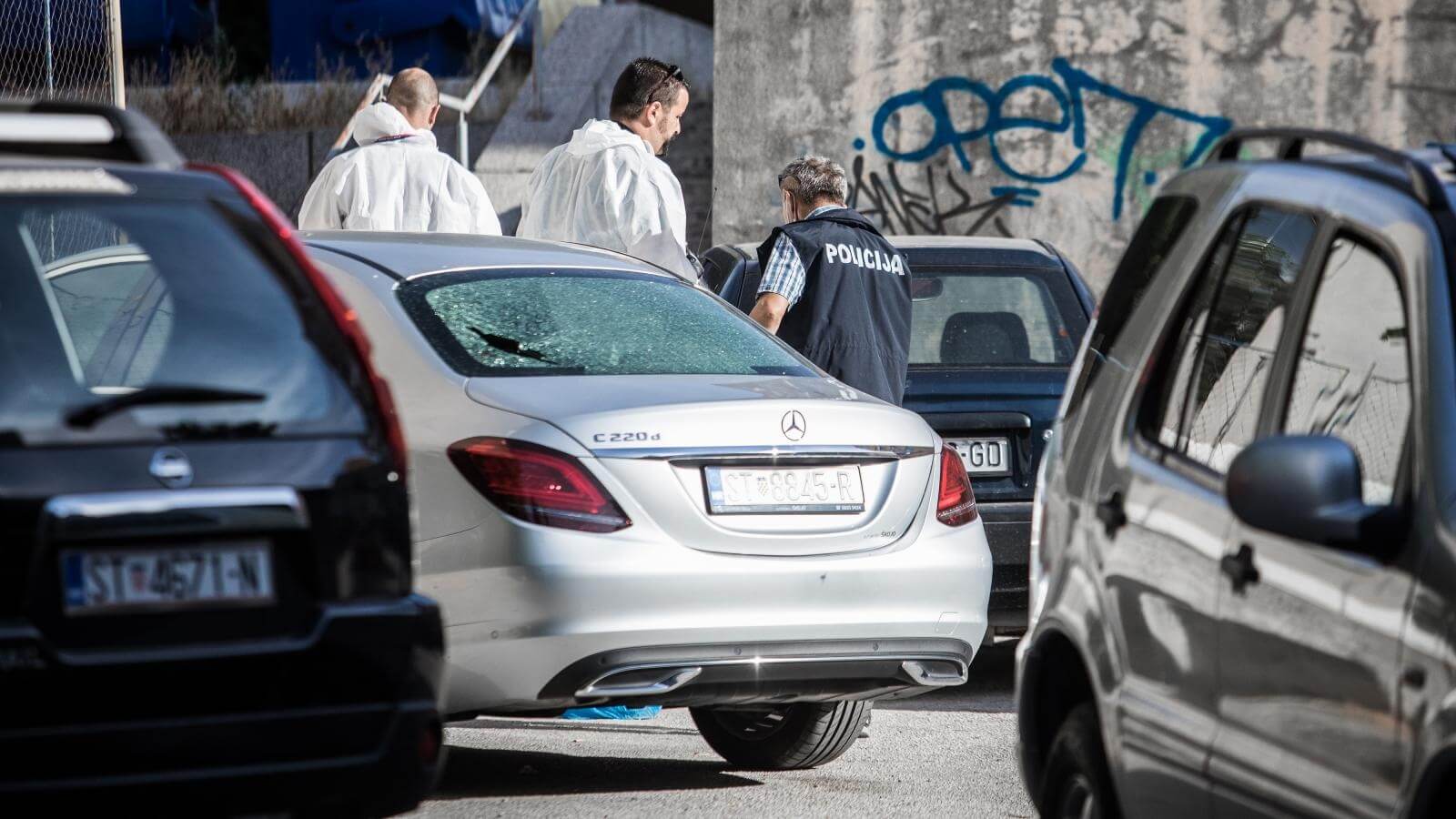
© Milan Sabic / PIXSELL
Highlights of the week: Bomb planted in Split. One person injured
In the night from Thursday to Friday, an unknown person placed an explosive device underneath a vehicle. The explosion damaged six cars, and one person required medical attention. The investigation is ongoing since Friday morning.
To learn more about Croatia, have a look at our TC website.
For more about news in Croatia, follow TCN's dedicated page.
Spanish Party Team in Split: Spanish Youth Tries the Croatian Coast
June 2, 2021 - One TCN intern spoke to three people from different regions in Spain about their expat experience in Split.
Croatia is an easy county to adapt to Spaniards because they don't really need to adapt a lot. The climate is similar on the Mediterranean coast and the culture has a common Catholic base. Meanwhile, it's not the same thing and they value their experience from living in Dalmatia.
My Croatian boss told me about his mate, a Split journalist, who once wrote that the best city in the world was... not Split, but San Sebastian located in the Basque Country, Spain. It represents a flagrant case, but in general, as I can see, many Split citizens have the positive impression of Spain - either through business trips, or holidays there, or the Camino - and wouldn't mind moving there for some period of time. I spoke with my Spanish colleagues in Split who have done the opposite move and asked them to compare their life in Spain and in Croatia. They came from different regions of Spain: Estela (28) is from the north-west region of Galicia, Pablo (24) is from the Saragosa, the capital of the north-east region of Aragon, and Jorge (25) is from the south-east region of Murcia.
Jamon or pršut?
"In the cuisine, there are many similarities because of common ingredients of Mediterranian cuisine," Pablo starts and enumerates some of it as olive oil, cheese, vegetables. Some foodstuff is more popular for one region than for others. For example, a homemade meal in Saragosa usually contains dishes with green beans, while in Split, it's difficult to find fresh green beans to cook with at home. In Galicia, people traditionally eat more liquid food or soups, while Dalmatians prefer solid foods like pašticada. 'Ajvar' sauce from red pepper is popular in the Balkans and would probably never become a part of Spaniards’ nutrition if they had not moved to Croatia.
Some differences in nutrition arise from the geographical circumstances, for instance, seafood is more typical for coastal sides of Spain as well as Croatia. Dorada fish is bigger in Galicia in the cold waters of the Atlantic than in Dalmatia in the Mediterranean Sea. Other distinctions stem mostly from the generational gap and personal circumstances. Young generations try to keep healthy nutrition with less meat and more fish in spite of the geographical region they live in. Estela feels closer to this generation than to the older one that cannot imagine the main dish without meat, either in Spain or in Croatia.
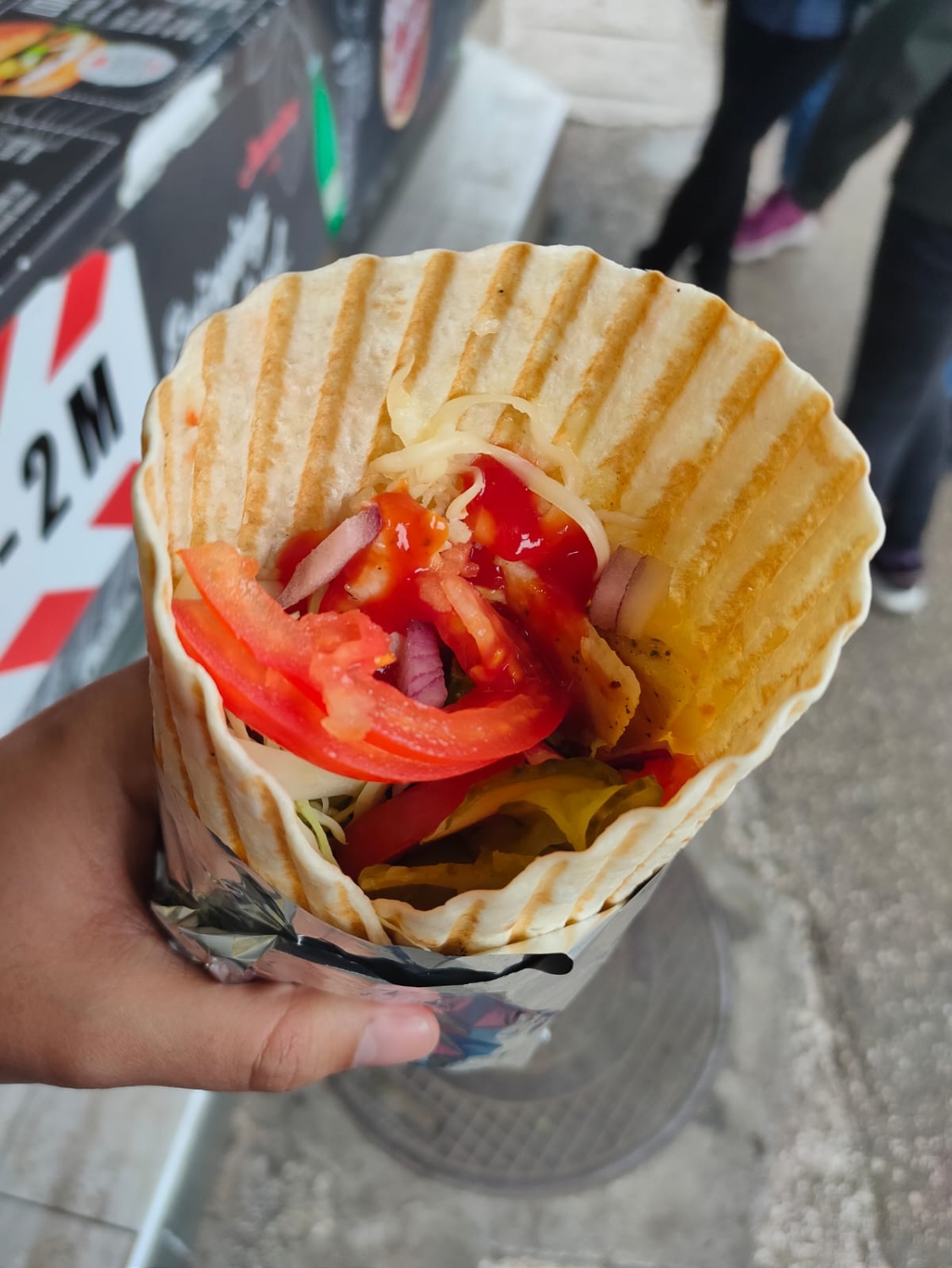
Jorge was surprised by the level of prices in the supermarkets here. It's more or less the same as in Spain, whereas the level of salaries is certainly lower in Croatia. He also misses big chain supermarkets in Croatia like 'Merkadona' in Spain, because it produces some foodstuff under its own brand. Things like 'guacamole' or 'hummus' have a good quality there. However, in Split, there are a lot of products imported from Spain, like 'Lidl' supermarkets with its 'Spanish week', etc. Maybe, you won't find some small local brands of cheese or beer that you're used to in Spain, but you will find an adequate substitution. Looking closer, ‘pršut' is similar to 'jamon', 'kulen' is similar to 'chorizo’, and the like.
Coffee or beer?
Choosing between coffee and beer depends on the time and day schedule for Spaniards. They feel more streamlined in this matter. Breakfast should be before you go to work. A lunch is between 2:00 and 3:00 pm, and dinner is served between 9:00 and 10:00 pm. "In Croatia, people eat when they want!" Pablo and Estela wonder. "Here, people drink more coffee", Estela continues. In Spain, it's normal to have coffee first with your breakfast, to drink one more in the afternoon, and perhaps to have one more coffee after lunch. People usually drink their last coffee at lunchtime, but not at 8:00 pm as people do in Split. Of course, there are some people in Spain who have to work in the evening or have other reasons to drink coffee so late, but most Spaniards prefer beer in the evening.
The culture around having coffee or beer in some public places does not differentiate much. You can enjoy one cup of coffee in a cafe for hours if you're not in a hurry. You can drink coffee quickly and go to work as well. It's typical to have a beer in the evening as people usually finish work, but it's ok to have it even at 1:00 pm as you've already finished your business. Coffee in cafes is a little more expensive than in Spain. Prices for beer in Split bar are also higher, as Jorge and Pablo guess. Estela makes adjustments. A mug of beer is bigger here, and accordingly, the price is higher. In sum, we have more or less the same level of prices in Croatia and in Spain. Also, Split is the second-largest city in Croatia and a tourist city, namely the ‘Croatian Barcelona’. Certainly, in the historic center of Barcelona, a glass of beer costs more money than in some towns in Galicia.
The variety of coffee is broader in Spain. For example, 'cortado' most likely won’t be found in any cafe in Split. Spaniards agree that the quality of coffee is good. Meanwhile, they prefer coffee from the machine or an Italian drip kettle. "Turkish coffee is kind of disgusting to everybody who gets used to Italian coffee," Jorge supposes. A beer in Croatia is less strong than in Spain, however as mentioned, a normal glass or a bottle is 0,5 l instead of 0,33 l. You get less alcohol with a bigger amount. At will, you can get the same thing in Spain. There, if a beer is too strong, people dilute it with sparkling water or lemon juice. In Croatia, nobody does that. But Croatians often dilute wine with sparkling water or ice that seems weird to Spaniards. "If wine is really bad, we do 'sangria' or 'calimontxo' (namely Croatian 'bambus') from it. If wine is good, we never mix it. People would ask why?!” Estela explains to me.
Inside or outside?
Estela and Pablo arrived in Split in late November 2020, a week before the second anti-Covid lockdown. Jorge came in March 2021, a week after cafes and terraces started to re-open after winter quarantine. One might think that Jorge was luckier to come later, but in fact, the Covid restrictions were stronger in Spain than in Croatia. In any case, their experience in leisure time had objective limits because of the Covid-19 pandemic. It's difficult to compare entertainment in your home town and in Split, they say because they haven't seen that touristic crowded loud Split as it was before the quarantine. However, nobody really suffered from the lack of activities here.
Pablo says that when you come for a year, you're more concentrated on the communication with new people you meet here. He was not striving to go to a gym or wherever for any organised leisure time. "I'm not bored now. If I lived here for a longer period of time and had a routine every day, I would probably try. I mean there are some museums, etc." Pablo speculates. Indeed, in this sphere of communication, we were lucky in Split. There are some typical public places for drinking in the afternoon or evening time in every town of Spain, but this kind of social activity is prohibited and the police usually come. Otherwise, Matejuška pier situated on the edge of the Split Riva is open 24h and rarely visited by the police. You can go there almost any time to drink in a company and meet amazing people from all over the world.
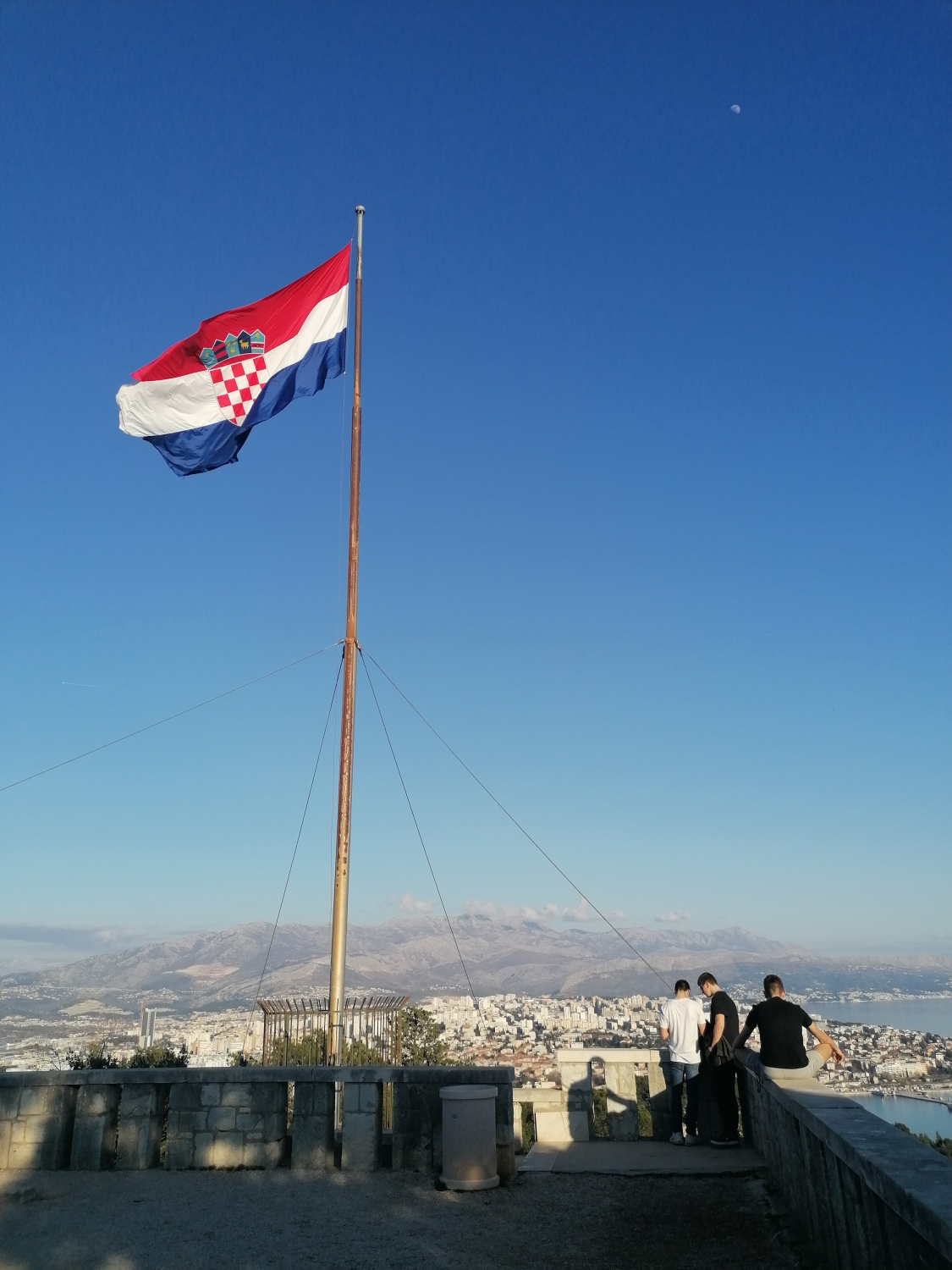
We met people on Matejuška even on the coldest evenings in winter. As a whole, there are fewer activities during the winter and more in summer. Leisure time options in Split are similar to Ferrol, Estela says. As well she prefers to spend leisure time outside. You can go hiking in the mountains or swimming in the sea - fortunately, both options are close to the city. If you fancy it, it doesn't take much time to come by foot to some beautiful nature place in the surrounding area. Split is situated on the hills, nevertheless, the Riva promenade is straight enough for roller-skating and skateboarding. With her friend, Estela found a good place for skating behind the ferry port of Split. Besides roller skates, she also took a slackline and was pleasantly surprised to find another group of slackliners in the city park Sustipan.
They went once to the cinema and theater. In the cinema, it was an American movie - an original version with Croatian subtitles. The fact that cinemas usually show original versions is for sure appreciated by Spaniards. In Spain, movies are mostly dubbed, thus foreigners have little chance to understand the plot. What is even more pleasant, as Estela's local friend shared with her, the summer cinema on Bačvice beach will be showed with double - Croatian and English - subtitles, so foreigners will have all the options.
To speak or not to speak?
My Spanish colleagues as well as I came to Croatia through an international program that affected our community. Almost from the first month, we joined the Facebook group 'Expats meet Split' and it also affected the international diversity of our social circle. Estela speculates: "If I had an ordinary work here, in a public school, for example, perhaps I would have more Croatian friends, and it would be easier to do at the workplace". But anyway, she considers Croats are very open to communication and their way of socialising similar to Spaniards. Croatians are open to suggestions to have coffee together, to go to the beach, to drink a beer in a bar.
Pablo has a more skeptical view of making friends with Croatians. He agrees that Croatians are open people, however, his experience of watching football in the company of Croats suggests that he needed to speak Croatian to have a true Croatian friend. They are nice, they invite you to watch a match together, but finally, they start speaking Croatian to each other and you're out of it, Pablo explains. Estela objects to him. "People of our generation, they speak good English. Of course, if you're in a big company, it'd be better to speak Croatian. If you're in a small company or one-on-one, you would not have problems socialising. You can communicate, speak, explain..."
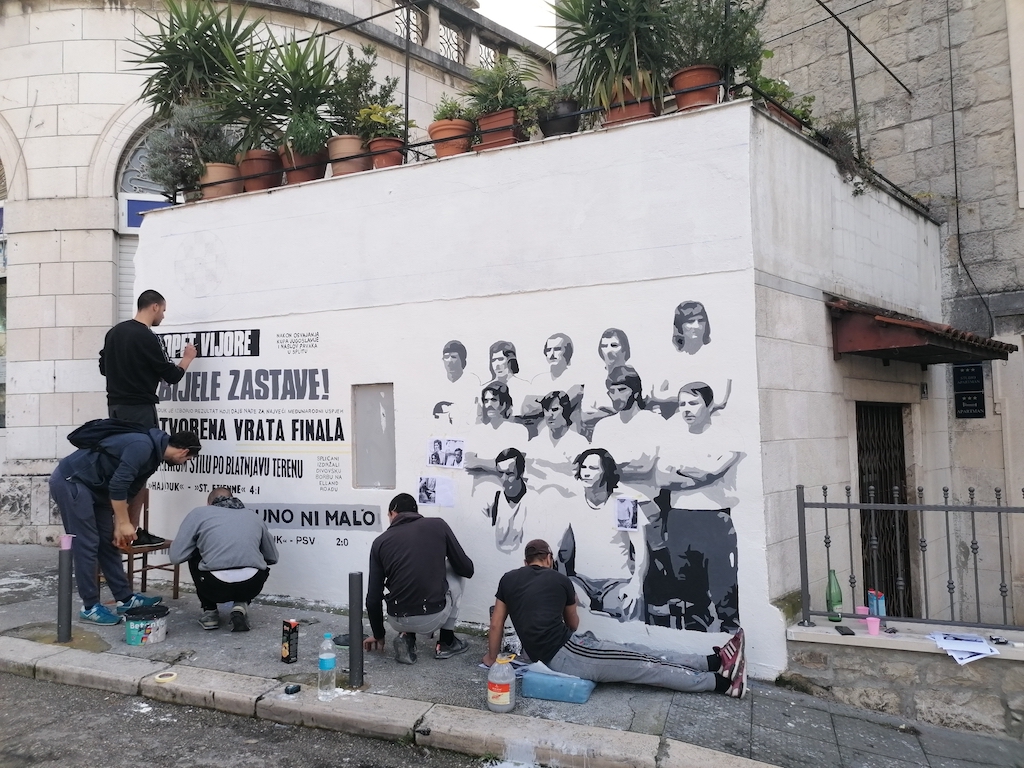
Learning Croatian is a challenge for people from Spain. The grammar is complicated. There is just a little intersection with Latin, therefore you need to learn totally new vocabulary. There are some words without vocals ('krv' blood, 'prst' finger, etc.) which is difficult to spell, some words with sounds missing in the Spanish language which is also difficult to spell ('ljubav' love, 'izviđači' scouts). Some usual words in Croatian sound funny to Spaniards, because it sounds similar to obscene words (‘koliko puta..." how many times...). Certainly, it would take years to learn Croatian properly. So far, my Spanish colleagues in Split speak mostly English and use a dozen of Croatian phrases on occasion.
Spanish people are everywhere. If you want to find them, you'll find them. However, my Spanish colleagues don't really try to find their countrymen. Jorge shies away from the Erasmus students' society that is kinda well-staffed by Spanish students in the University of Split. Pablo's first preference was an international party, but now he doesn't care whether he will join an international or Spanish party the next evening. Estela said that she tried to avoid Spanish society. "If they start talking with me, of course, I talk... If we are in a big company, I try to move to an international circle... I have enough Spanish friends in Spain."
Pomalo or even more pomalo
As we seek to describe the culture of a region by one word, we likely use 'pomalo' for Dalmatia. In the Dalmatian dialect it means 'take it easy', 'relax', 'slow down', 'put it off until tomorrow, 'we will do it tomorrow, 'we can do it tomorrow... or later'. The Spanish word 'mañana' (tomorrow) has quite a similar context to it. In Europe, these concepts are traditionally associated with southern sloths and laziness. "Europe has a stereotype of us that we are really pomalo, but here there's even more pomalo," Estela shares her impression. Pablo echos her: "Here everybody is so relaxed. It doesn't matter whether you come on Monday morning, or Tuesday morning, the Riva is full of people. And these people are not only tourists!" It looks like nobody works in this city!
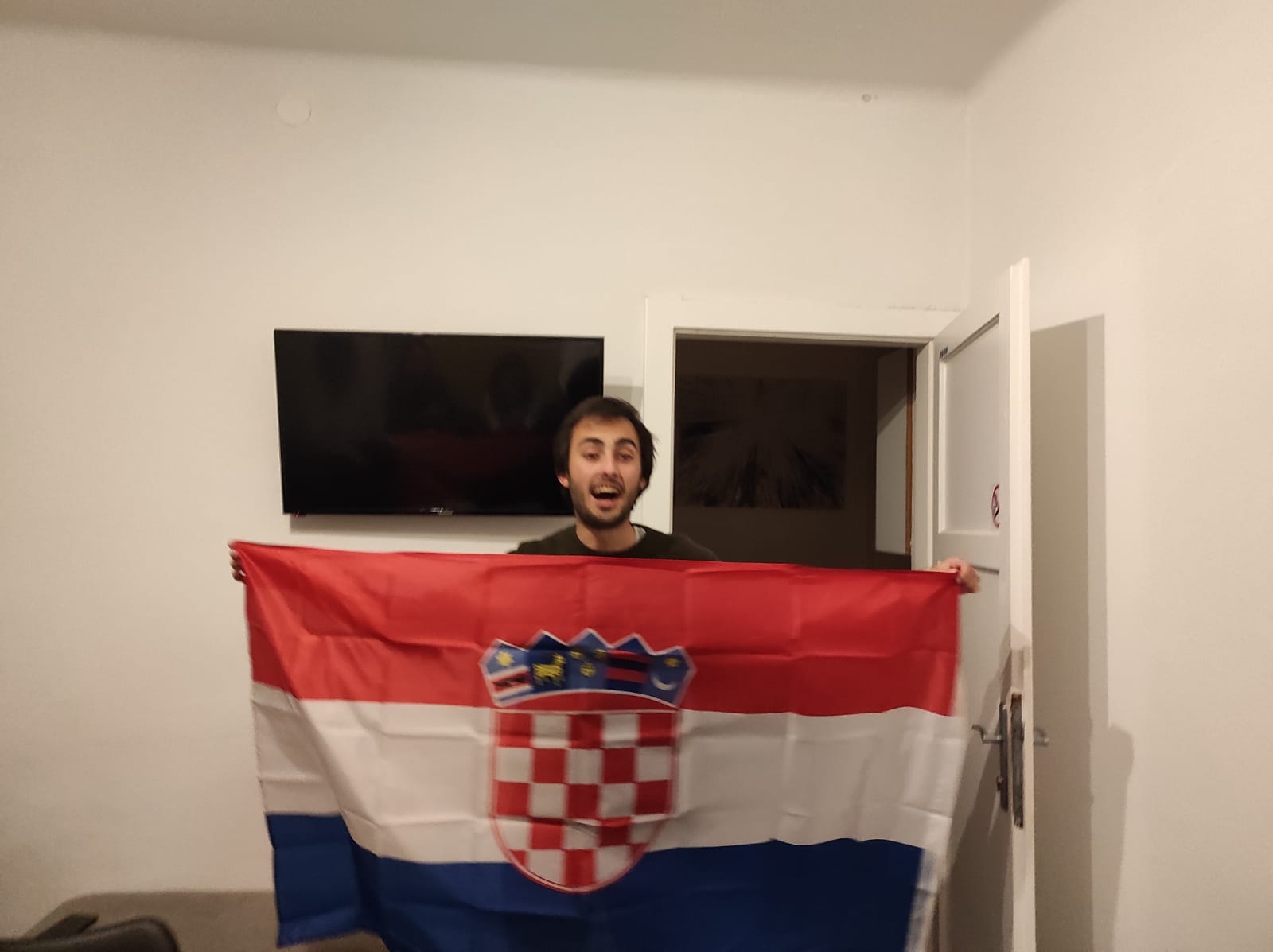
Joking aside, some manifestations of this pomalo mentality at times frustrates my Spanish team. Estela chooses her words to be merciful with our lovely Dalmatia - flexible, not disorganised. Notwithstanding, she would like to see fewer last-minute moves and more long-term plans. Maybe, slowly, but it should come to its objective. The illustrative example is local services. Croatian Post works really slow. Sending something from Spain takes about a month, but in the end, reaches the consignee. One of the bottles was broken, but when they contacted the Croatian Post service, they promised to manage it. Meanwhile, postcards that Estela's mom had sent her via post never came to Split.
Another story has happened with my colleagues during the use of the 'e-bike' service in Split. They bought an annual Croatia subscription in Zadar and should not be charged more. But the bike company began to charge them more for rentals in Split. After e-mailing, the Spanish expats learned that Split (a big tourist city, for economical reasons) and Jastrebarsko (a small town, for a random reason) are excluded from the whole-country subscription. The company returned the money and they changed the subscription to Split only. So, services work, although slowly, whereas you should make contacts and push them, and remind them, but finally, a responsible person helps you, and you get a result. So, you can manage. But, it'd be better to feel more secure from the beginning, wouldn't it?
For more about lifestyle in Croatia, follow TCN's dedicated page.
Parl. Parties Endorse Ratification of Classified Information Agreement With Spain
ZAGREB, 12 March, 2021 - Croatian parliamentary parties on Friday endorsed the proposal to ratify the Agreement on Mutual Protection of Classified Information between the governments of Croatia and Spain.
During the discussion, Zvonimir Troskot (Bridge) noted that Croatia and Spain had had good bilateral relations since the 1990s, sharing the same principles and goals.
"Both countries are facing the same challenges - migration, the fight against terrorism, climate change, Spanish companies are already present on our market, so why are we ratifying this agreement only now?" Troskot asked.
Juro Martinović, State Secretary at the Ministry of Justice and Administration, said that "there is nothing spectacularly new" in the Agreement. "States always regulate such matters. Under international law, Croatia is a successor to many agreements concluded by (former Yugoslavia)," he added.
Martinović said that the Agreement had been signed on 15 December 2020 and that it established a legal framework for the protection of classified information that is generated or exchanged between the parties, and designated competent authorities for the implementation of the Agreement. The Agreement also determines equivalent classification levels, national measures to protect classified information and mechanisms for transmission of such information.
Independent MP Marijana Petir asked Martinović if Croatia had similar agreements with other EU countries and whether there had been any violations of those agreements, to which he said that he had no knowledge of any violations.
Ivan Budalić of the ruling Croatian Democratic Union (HDZ) said that Croatia had similar agreements with many countries, including Austria, Bulgaria, the Czech Republic, France, Hungary, Sweden and Italy.
Dalija Orešković (Centre party) was interested to know who had decided on concluding the Agreement, who had appointed the delegation and whether the President of the Republic was involved in the process, to which Martinović said that the Agreement enters into force after it is signed by the President of the Republic and published in the Official Gazette and the two governments exchange notes.
For more about politics in Croatia, follow TCN's dedicated page.
Croatian-Spanish Economic Forum: Spanish Companies Seek Croatian Partners
As Novac writes on the 23rd of September, 2020, the focus of the Croatian-Spanish Economic Forum, organised by the Croatian Chamber of Commerce and the Embassy of the Kingdom of Spain in the Republic of Croatia on September the 30th, will present opportunities for cooperation in the field of renewable energy sources.
Although Croatia's share of renewable energy sources in total consumption exceeds the EU target of 20 percent by the end of 2020, the potential isn't even close to being used. The Spanish market is large and requires all company profiles, from aluminum and steel manufacturers, through contractors to designers and consultants.
The domestic equipment and services industry should participate more significantly in the European energy transition. Our companies have the knowledge, and a quality partner can offer that financial strength for an additional step forward and breakthrough into new markets.
''In its recovery plan, Croatia should focus on activities that can restart the economy, on a sustainable basis, and move closer to carbon neutrality, the goal of the European Green Agreement before 2050. This is a great opportunity for domestic companies to find their place on the very potent Spanish market, but also to enter third markets together with their companies. We have a long tradition in the power industry, but we also have something to learn from the Spaniards,'' said the director of the Sector for Energy and Environmental Protection of the Croatian Chamber of Commerce, Marija Sculac Domac, announcing the Croatian-Spanish Economic Forum, and her claims are supported by the figures.
Namely, Spanish companies own 10.5 percent (over 40,000 MW) of all the world's wind power plants and produce 12 percent of the world's wind turbines and parts for them. More than 20 percent of Spain’s electricity needs are covered by wind farms. The development of the Spanish market is also shown by the fact that in 2018, they produced 84,933 GWh of electricity from wind and solar power, while 1,686 GWh was produced in Croatia.
The envoy for Trade and Economy of the Spanish Embassy in Croatia. Pablo Cascon Salgado, emphasised that Croatia and Spain have many similarities in terms of climate, economic structure and business culture.
''As Mediterranean countries, we have similar conditions for the development of renewable energy sources. Therefore, the exchange of experiences and the association of companies from both countries in this sector can be of great interest for joint progress towards carbon-free economies,'' said Cascon Salgado.
A dozen Spanish companies have already registered for the Croatian-Spanish Economic Forum, among the leaders in the field of RES (especially in the production of electricity from solar power), which clearly shows the great interest in cooperation with Croatian companies. The Spanish multinational power company Iberdrola and the Spanish National Energy Institute IDAE will also participate in the forum through an online lecture.
The International Renewable Energy Agency predicts that the number of jobs in the renewable energy sector will increase to 42 million in the next 30 years, and the fact that they are listed as the 7th global goal of sustainable development speaks volumes about the importance of RES.
According to the HROTE report, 72,016,131 kWh of electricity from solar power plants was produced in Croatia last year, and the total production of electricity from RES increased in 2019 by 16.1 percent compared to the previous year.
For the latest travel info, bookmark our main travel info article, which is updated daily.
Read the Croatian Travel Update in your language - now available in 24 languages


